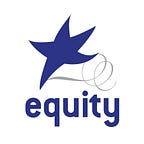SAFE PASSAGE THROUGH THE SOCIAL MEDIA LABYRINTH
Social media is ubiquitous in modern life and navigating it safely as a performer can be tricky. Psychologists Julie Crabtree and Shannon Gostelow have used their experience working with creative people to draw up some simple guidelines for avoiding the pitfalls.
Social media has become a near-essential tool for actors and other performers. Even casting decisions can be made factoring in social media presence. It comes up a lot in the therapy space because an unhealthy relationship with social media can negatively impact self-esteem, identity, self-worth, motivation and mood. While navigating social media in a healthy way can be challenging for an actor, it’s imperative for career longevity.
Keep personal and professional social media separate. Actors are very tribal and their social world is full of others in the industry. They work, rehearse, train, go to auditions, have relationships and attend productions together. It’s easy for the personal and professional to become enmeshed, but this doesn’t help you maintain a healthy relationship with social media. Always keep them separate and your personal profile private.
In addition, sometimes you need time out from your online friendship group — that is, you’re fixated on your recent breakup or doom scrolling. On other occasions, you need space from your professional profile (your friend and sometime rival has been cast and you’re spiralling). Use this personal and professional differentiation as a guide to learning to recognise when and what type of space you need.
View professional social media as your work persona and approach it with the protection you bring to your ‘day job’. Engage at a regular time and put boundaries around it. Curate your image and profile. Decide what personal information or images you are prepared to disclose on your professional profile and stick to it. This will help you avoid the sort of drunken, impassioned or damaging post that has seriously disrupted careers. Above all, keep your work persona as the go-to framework for communication.
Understand your ‘skinlessness’ (reduced sensory filters or, in other words, living with one layer of skin missing). You need the following qualities to be great at your craft but they do come with a warning label attached in relation to social media.
● You are highly emotional and likely big on empathy, feeling your pain and that of others acutely, so you will be very sensitive to rejection, trolling, negative comments and too many ‘stories’ or reductive viewpoints. It’s important to learn how to protect yourself from the distress of these.
● You are wired for affirmation, so monitor if you are becoming obsessively addicted to ‘likes’ and other forms of online approval.
● You are fantastic at developing character and stories, and tuning into others’, but can fall prey to paranoid imagining of negativity taken from incomplete online information − for example, why did they give me just a thumbs-up? Shouldn’t they have commented and reposted? Did I do something wrong?
● The more you understand your creative persona, the better you will be at navigating social media with you back in control. It is never too late to engage these ideas. As a creative person, you will be naturally gifted at innovation, so if you have already experienced the exposing blur between the personal and professional worlds, take a break, reshuffle your social media presence and rebuild the protective boundaries.
Researchers understand that social media can be a positive force in enhancing communication and identity formation, but it can also have serious negative impacts on our mental health. It is not a benign tool and it is wise to treat it with care.
Dr Julie Crabtree and Shannon Gostelow are practitioners at Zebra Psychology. As an experienced clinical and counselling psychologist, Julie has worked extensively with creative people. Also through her doctoral research into creativity and mental health, she is at the forefront of our understanding of how to be both healthy and creative. Shannon is a registered psychologist who has worked as a professional actor.
